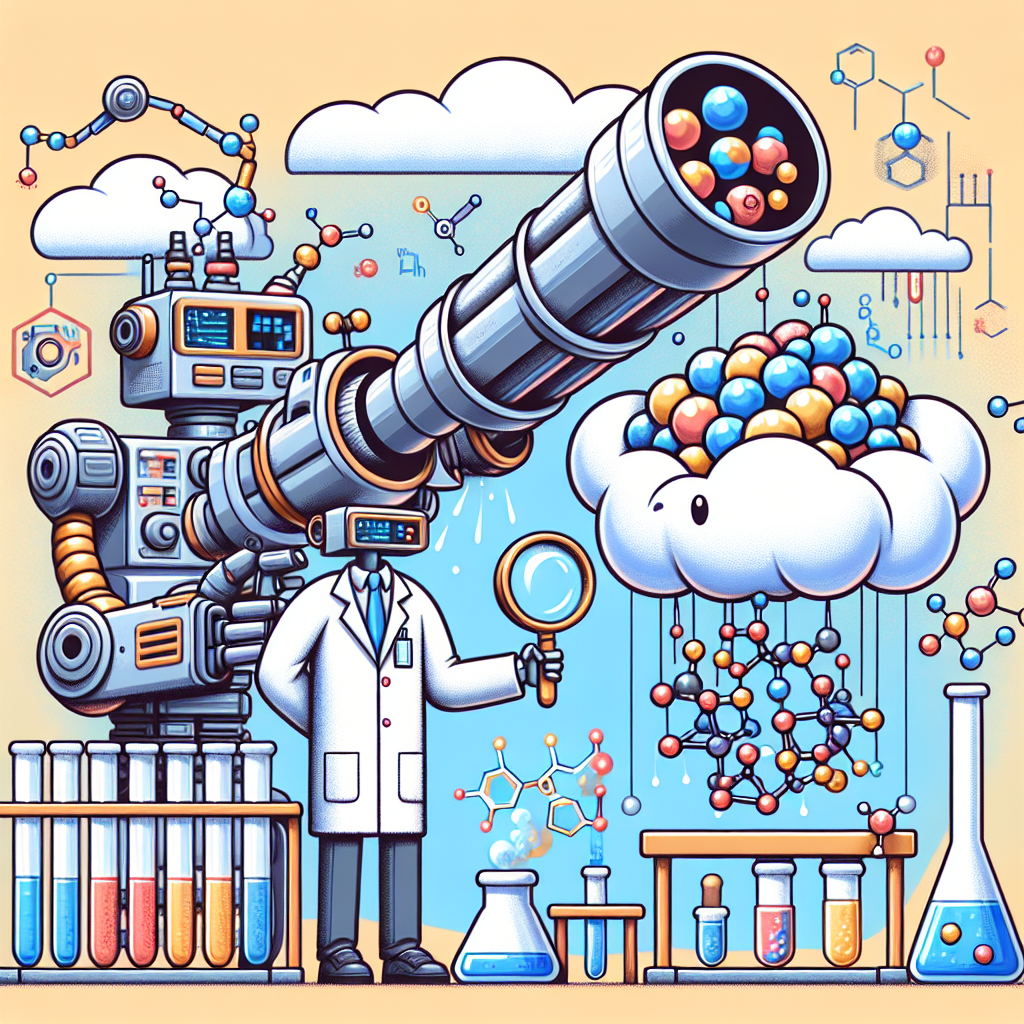Artificial intelligence (AI) has been making significant advancements in various industries, and one area where it has shown immense potential is in drug discovery. The process of discovering new drugs can be time-consuming, expensive, and complex, but AI has the ability to streamline and accelerate this process. By harnessing the power of machine learning algorithms and big data, researchers can more efficiently identify potential drug candidates, predict their effectiveness, and optimize their properties.
AI in Drug Discovery: How it Works
The traditional drug discovery process involves screening thousands or even millions of chemical compounds to identify potential drug candidates. This process is not only time-consuming but also costly, as many of these compounds may ultimately prove to be ineffective. AI can help by utilizing algorithms to analyze large amounts of data and predict which compounds are most likely to be successful.
One key application of AI in drug discovery is in virtual screening. Virtual screening involves using computer algorithms to predict how a particular compound will interact with a target protein, such as an enzyme or receptor. By simulating these interactions in silico, researchers can identify promising drug candidates without the need for costly and time-consuming laboratory experiments.
Another application of AI in drug discovery is in drug repurposing. Drug repurposing involves identifying new uses for existing drugs that have already been approved for use in humans. By analyzing large databases of drug compounds and their effects, AI algorithms can identify potential candidates for repurposing, saving time and resources that would otherwise be spent on developing new drugs from scratch.
AI can also be used to optimize the properties of drug candidates, such as their potency, selectivity, and safety profile. By analyzing the chemical structure of a compound and predicting its pharmacological properties, researchers can more efficiently design and develop new drugs with improved efficacy and reduced side effects.
Challenges and Limitations of AI in Drug Discovery
While AI has shown great promise in drug discovery, there are still several challenges and limitations that researchers must overcome. One of the main challenges is the lack of high-quality data. AI algorithms rely on large amounts of data to make accurate predictions, but much of the data in drug discovery is proprietary and not easily accessible. Researchers must find ways to overcome these data limitations in order to fully harness the power of AI in drug discovery.
Another challenge is the interpretability of AI algorithms. Machine learning algorithms are often considered “black boxes,” meaning that it can be difficult to understand how they arrive at their predictions. This lack of transparency can make it difficult for researchers to trust the results of AI models and incorporate them into their drug discovery workflows.
Additionally, there are ethical considerations surrounding the use of AI in drug discovery. For example, there is a risk of bias in AI algorithms if the data used to train them is not representative of the population or is biased in some way. Researchers must be mindful of these ethical considerations and take steps to mitigate bias in their AI models.
FAQs
Q: How is AI being used in drug discovery?
A: AI is being used in drug discovery in a variety of ways, including virtual screening, drug repurposing, and drug optimization. By analyzing large amounts of data and using machine learning algorithms, researchers can more efficiently identify potential drug candidates, predict their effectiveness, and optimize their properties.
Q: What are the benefits of using AI in drug discovery?
A: The benefits of using AI in drug discovery include faster and more efficient drug development, reduced costs, and improved drug efficacy and safety. By harnessing the power of AI, researchers can accelerate the drug discovery process and bring new treatments to market more quickly.
Q: What are the limitations of using AI in drug discovery?
A: Some of the limitations of using AI in drug discovery include the lack of high-quality data, the interpretability of AI algorithms, and ethical considerations. Researchers must overcome these challenges in order to fully harness the potential of AI in drug discovery.
Q: How can researchers overcome the challenges of using AI in drug discovery?
A: Researchers can overcome the challenges of using AI in drug discovery by finding ways to access high-quality data, improving the interpretability of AI algorithms, and addressing ethical considerations such as bias in AI models. By taking these steps, researchers can more effectively harness the power of AI in drug discovery.
In conclusion, AI has the potential to revolutionize the field of drug discovery by accelerating the development of new treatments, reducing costs, and improving drug efficacy and safety. While there are still challenges and limitations to overcome, researchers are making significant progress in harnessing the power of AI to discover new drugs. With continued advancements in AI technology and data analytics, the future of drug discovery looks promising.

